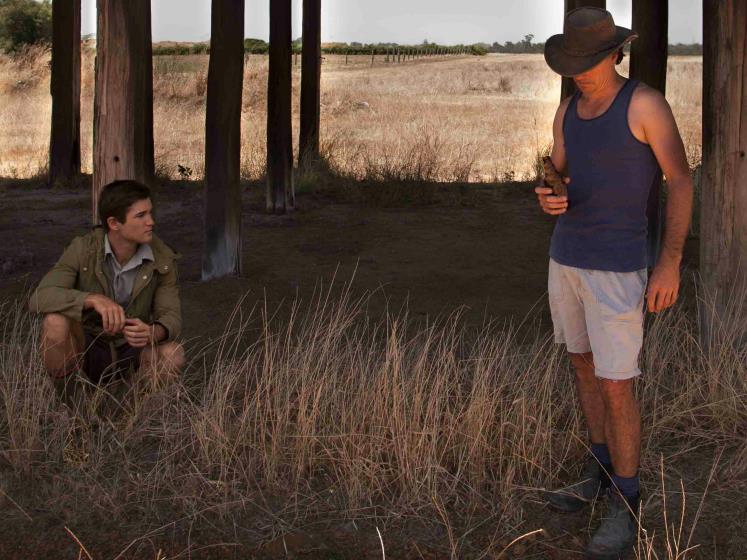Intergenerational dialogue proves that we all have things to learn in this carefully researched and skilfully scripted play about the human legacy of the Australian war experience.
Douglas is the son of Bob McNab – Lieutenant Colonel Robert McNab MC CBE MVO – bona fide war hero. While Doug is the physical spitting image of his father, he resents the constant push to seize opportunities and excel. Jack served with McNab senior in the war, rising to corporal before going AWOL, sent together from North Africa to the Pacific, from horror to horror.
Returning from war, the men’s lives diverge, their different social backgrounds reclaiming them, with McNab becoming president of the WA Branch of the RSL and Jack taking up a conditional purchase block in the South West, painstakingly clearing the stony land. Doug goes to stay with ‘Uncle Jack’ when he finishes his high school exams, a willing pair of hands and fresh ears for Jack’s stories. Both men find they have plenty to share with and learn from each other, the single eventful summer of hard labour helping each to grow.
The physical presence of Jack as inhabited by Quintin George is perfect. With his wiry muscled frame and natural quizzical expressions, he brings the sudden terrors of wartime to life and throws experienced lanky limbs into action to clear his land, the hard way. The delivery of information, volunteering the fact that he’d been McNab’s batman ‘but not his servant’, is part of a man who knows he is broken in many ways, but who retains particular points of pride. George’s occupation of the man who irreverently mimics the airs and graces of British officers, who downplays his own artistic potential but appreciates its existence in others, is played strongly and as a complex whole, rather than taking any easy short cuts through clichés.
Likewise, the contrastingly sturdy and ignorant youth of Douglas is a fully rendered portrait of a conflicted individual by Ben Hall, rather than stereotyped callow private schoolboy. Hall steps confidently into the shoes of the elder McNab at war, delivering lines from a diary as the audio visual display transforms the scrubby farm into a youth-destroying foretaste of hell. His way of stepping up to the devastation, trusting in his own luck, contrasts vividly with Jack’s loss of control, but Hall’s acting subtly shows the sowing of seeds for his stunted return to civilian life.
Ross Lonnie’s gift of his own life experience, as much as his control of a script that takes the audience through grim laughter and farcical tragedy, strengthens Uncle Jack with its underlying ring of truth. Nothing is absolute, there are tender moments during the onslaught of enemy action, and there are moments of despair in the midst of what should be the success of post-war family life. Each character is a human being rather than a symbol of any concept, and brings their full humanity to the stage with, at times brutal, honesty that is invigoratingly accessible.
The diction of some of the early lines of the play can be difficult to catch, but as the rhythm of the dialogue settles and the characters become more comfortable with each other, it falls more naturally on the ear. Particularly impressive are the range of poetry and snatches of song woven into the script and performed without interrupting the pace of performance, with the selected fragments delivered strongly and in a way that enables the various verses and stanzas to enhance rather than disrupt the narrative.
Thoughtful, respectful and immediate in its impact, Uncle Jack is a strongly-developed work that entertains as it encourages understanding.
Rating: 4 out of 5 stars
Uncle Jack
Presented by The Blue Room Theatre and Ross Lonnie
Playwright: Ross Lonnie
Director: Soseh Yekanians
Set Designer: Patrick James Howe
Sound Designer: Carley Gagliardi
Lighting Designer: Tegan Evans
Stage Manager and Sound Operator: Elisabeth Strohmeier
Lighting and AV Operator: Max Wilkie
Performed by Quintin George and Ben Hall
Blue Room Theatre, Perth Cultural Centre
www.blueroom.org.au
22 April – 10 May





